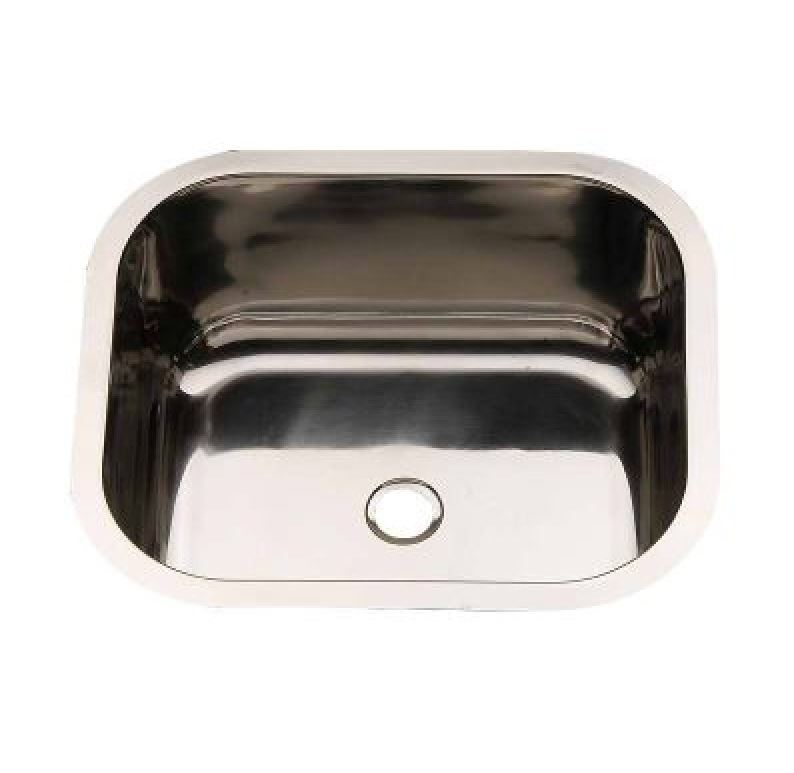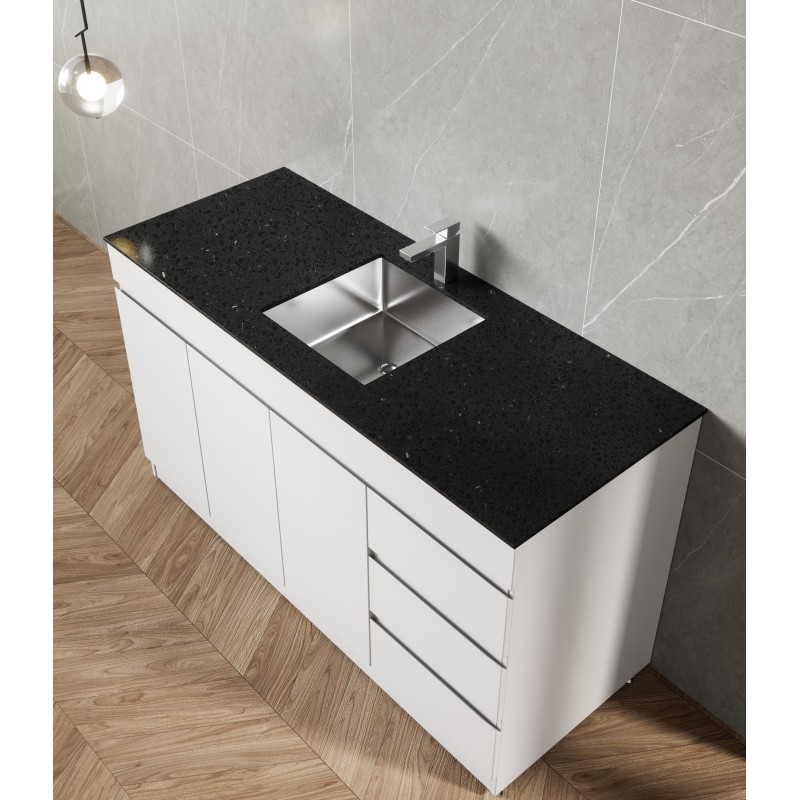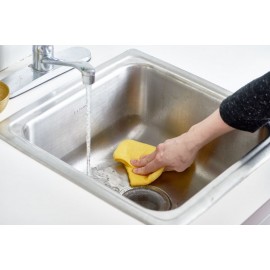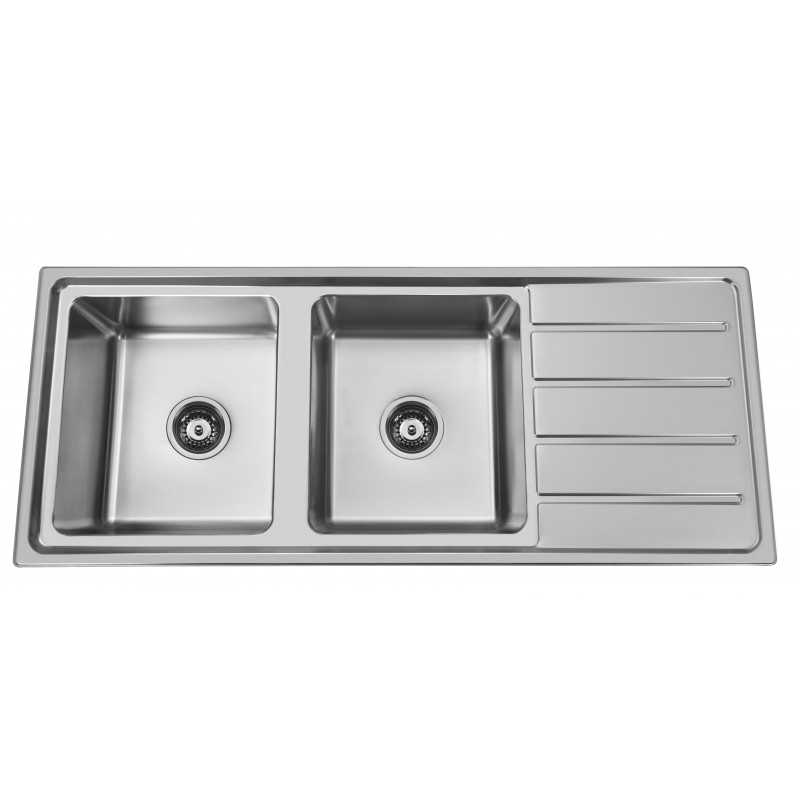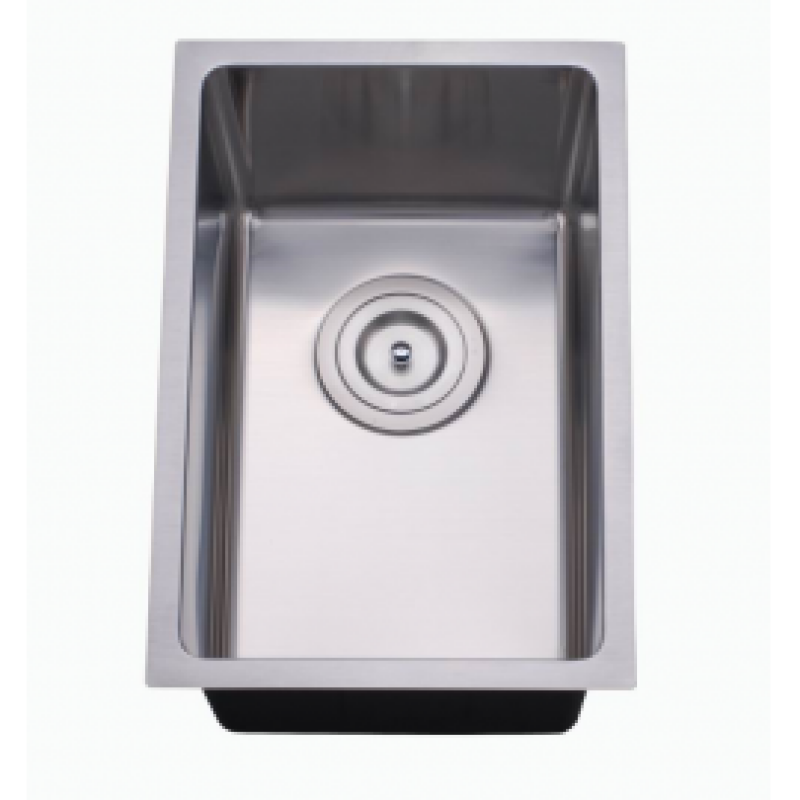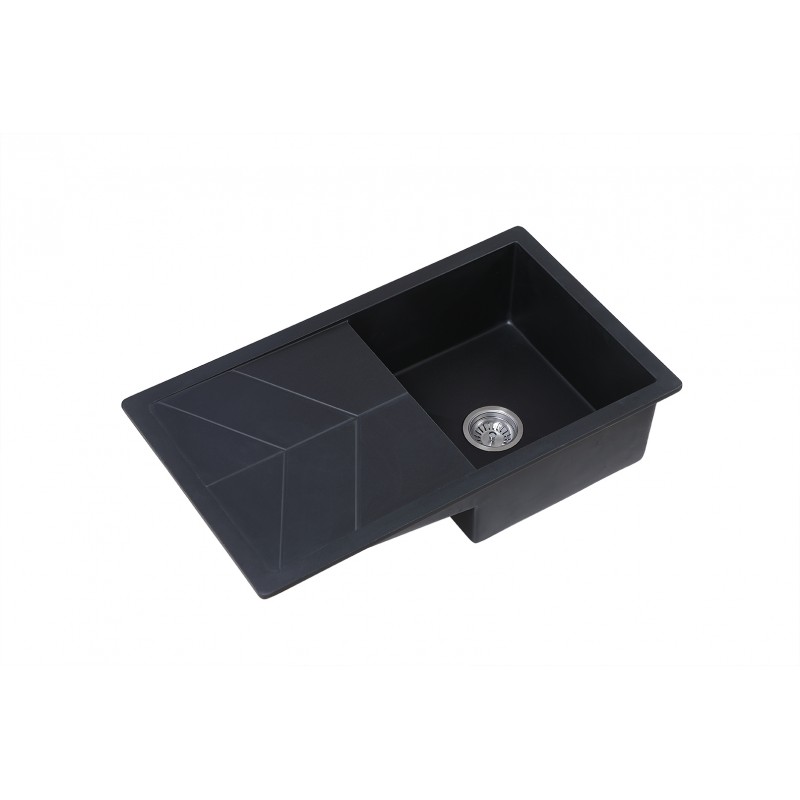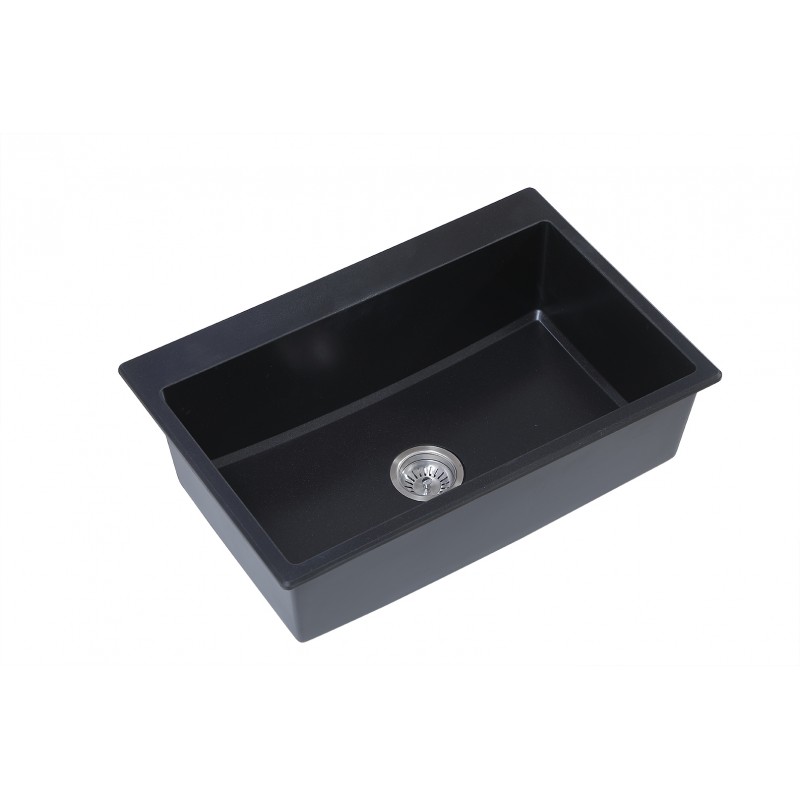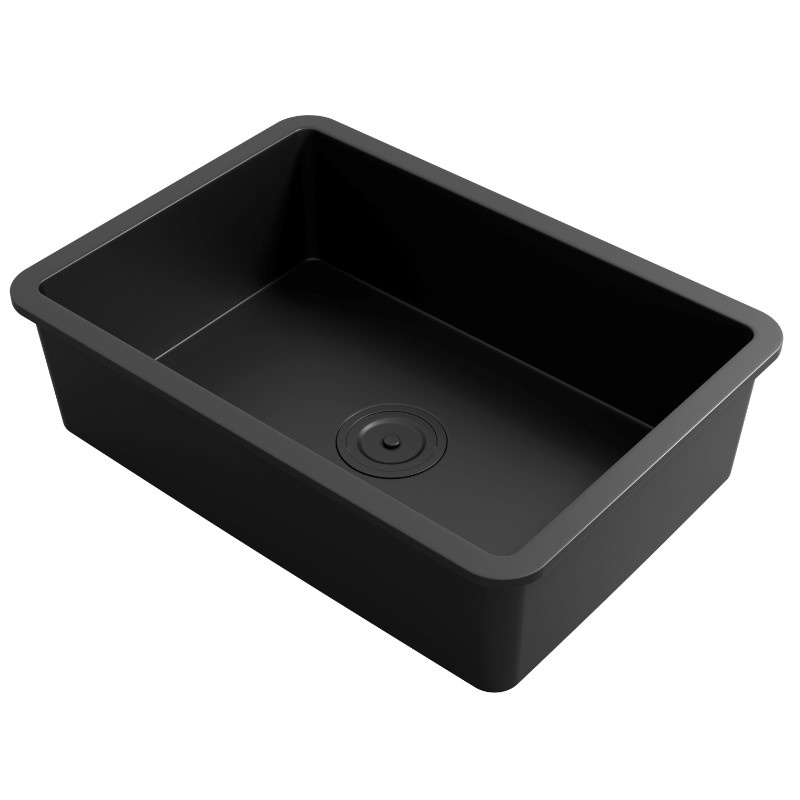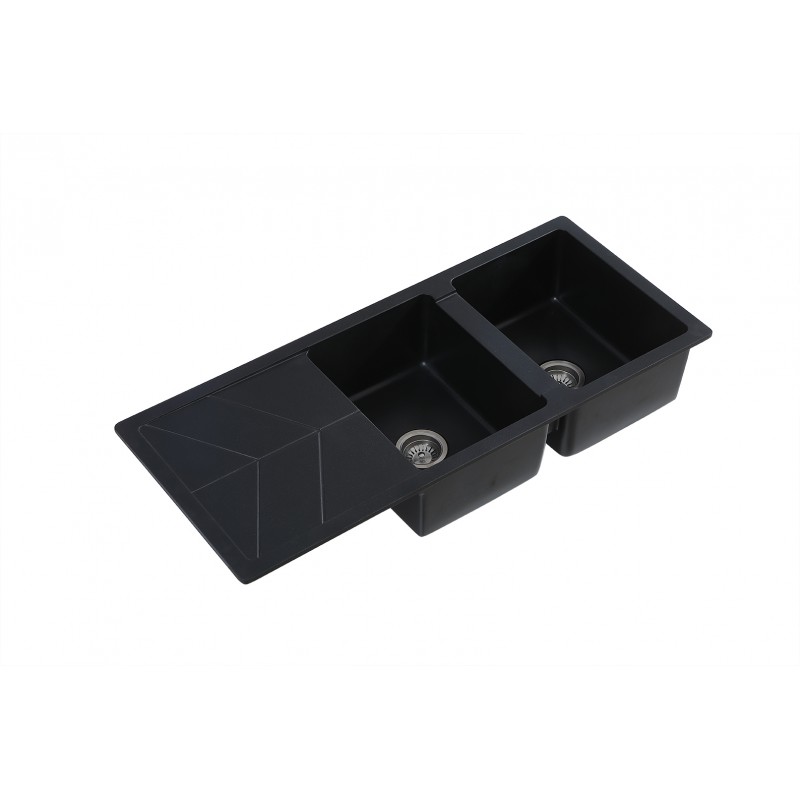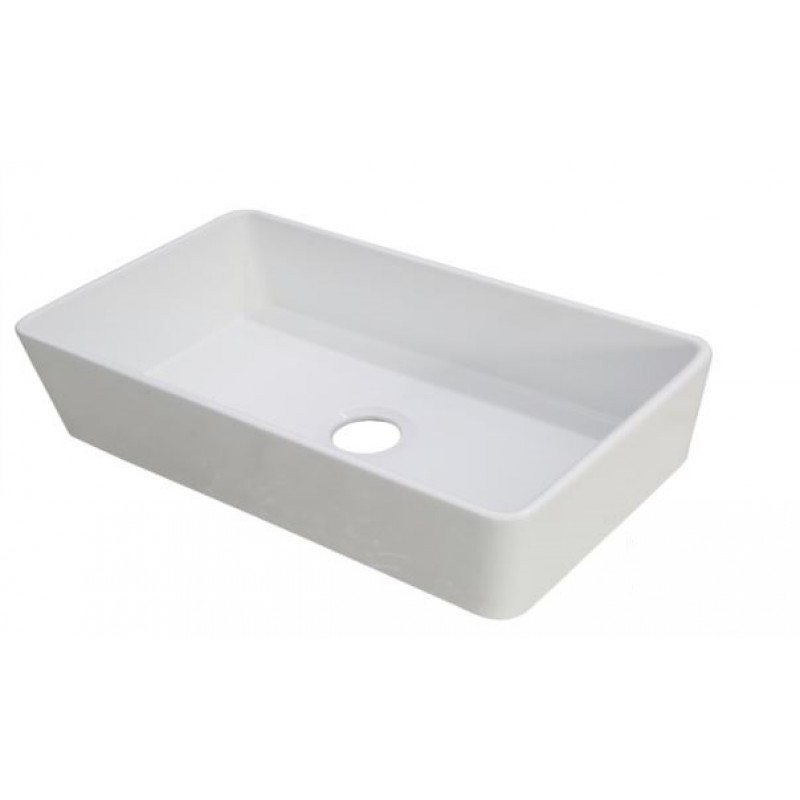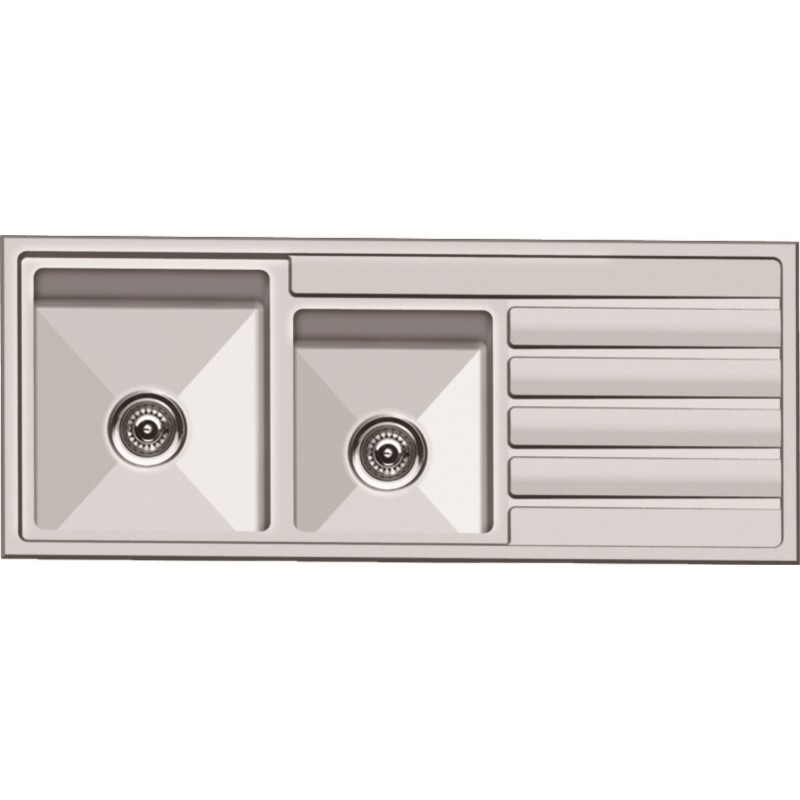Description
Sink Care
Ostar sinks are manufactured from 304 grade stainless steel, for optimum hygiene and durability. However, no stainless steel sink was ever designed to do battle against hardened metal utensils or food processor blades, etc, without incurring at least a few scratches.
To maintain the shine on your stainless steel sink, regular maintenance is recommended with any of the easy to obtain, non-abrasive stainless steel cleaners or metal polishes.
The Dos and Don’ts of Cleaning Your Sink
DO
-
Rinse Sink Thoroughly. Rinse your sink thoroughly after each use. Stainless steel looks best if it’s cleaned regularly with plenty of water.
-
Towel Dry Your Sink. Towel dry your sink with a dry, soft, absorbent cloth after each use. This prevents mineral deposits in the water from building up on the surface of the sink.
-
Clean Sink Once a Week. All sinks should be cleaned once a week using soapy water and a soft cloth or sponge, then rinsed and towelled dry. Be sure to rub stainless steel sinks in the direction of the satin finish lines.
-
Use Glass Cleaner for Added Shine. Wiping over your stainless steel sink with a glass cleaner is a great way to make your sink shine.
-
Use of Stainless Steel Cleaners. Stainless steel polishing creams can help make existing scratches on stainless steel sinks less noticeable but must not be used on coloured stainless steel or granite sinks.
DON’T
-
Leave Juices on The Sink. Don’t leave fruits or juices on the sink; wipe them up immediately as they contain citric acids which over time can etch the surface.
-
Leave Chemicals on the Surface. Don’t leave chlorine/chloride chemicals on stainless steel surfaces as this could damage the surface of the sink.
-
Leave Sponges on the Sink. Don’t leave bars of soap, wet sponges or cleaning pads on the faucet ledge. Over time, these items will dull and possibly pit the surface of the finish.
-
Store Chemicals Beneath the Sink. Don’t keep harsh (acids, chlorine, bleaches, etc.) chemicals under sink / laundry tub.
